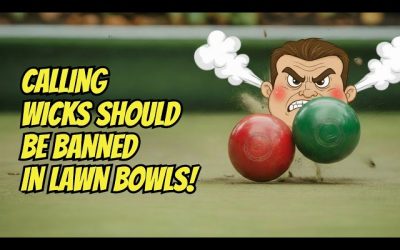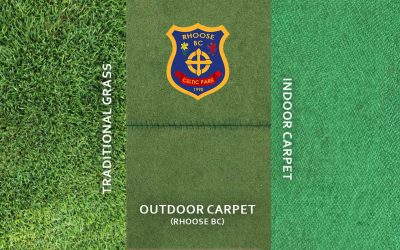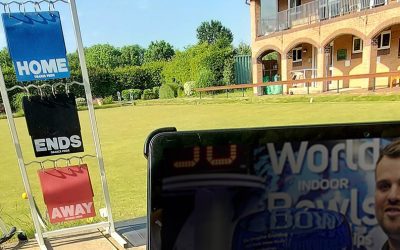When a singles game (competition) is arranged within a club, a marker is always needed. In big competitions, umpires are also needed. The role of a marker, according to the laws of the game, is to make sure that all aspects of play are carried out in line with the laws of the sport.
In club competitions (and singles games in general) the laws of the game state (section 3.2):
- The marker must check that the mat is placed on the centre line and that the jack is also centred. They can ask a player to straighten a mat.
- The marker must make sure that the jack is at least 23 metres once centred.
- If the jack goes into the ditch when delivered they indicate the other player must deliver the jack.
- After an illegal delivery of the jack the mat can be moved to another legal limit by the player delivering the jack (or left where it is), and the jack also delivered to a legal limit of 23 metres minimum.
- If both players fail to deliver the jack correctly, the jack is placed on the T and the mat can be moved to any legal limit (23 metres or more) from the jack by the original player and play commences.
- When regular play commences, the marker must stand still to one side of the rink, behind the jack and away from the head (at least a metre back and to the side, and not obstructing rink markers).
- The marker must answer any specific question about the state of the head when asked by the player in possession of the rink. The marker should answer the question without too much additional information. For example, when asked “who is holding shot?” should answer, “you are.”. There can be some additional information or gesture that a marker can say or do, maybe pointing at the bowl that is holding is fine. Some people believe this to be more than was asked, but common sense prevails.
- A marker shouldn’t be giving more information than was asked, and can’t act like a skip would be acting if asked a similar question by a third, for example. A marker can answer any question to the best of their ability, as long as they answer what was asked, and can also say they don’t know (if it was a case of who is holding shot, and perhaps they couldn’t tell and then suggest – ‘it is a measure’).
- A marker must not answer any questions from a player who is not in possession. Basically, if it isn’t a player’s turn they cant ask questions. If a player’s bowl has come to rest, and the other player is about to play, only the player in possession can ask questions (law: 42.2.6).
- A marker must not coach or suggest any strategy.
- The marker, when asked, must tell or show the player in possession of the rink the position of the jack.
- The marker, when asked, must tell or show the player in possession of the rink which bowl or bowls the marker considers to be shot.
- The marker must mark all touchers with chalk and remove the chalk marks from non-touchers as soon as they come to rest.
- The marker must stop any bowl that is from a neighbouring rink and could move a jack or bowl that is at rest.
- The marker must mark the position of a jack and any touchers which are in the ditch as described in laws 14.4 and 18.2.
- The marker must not move, or cause to be moved, either the jack or any bowls until the players have agreed the number of shots scored.
- The players should do their own measuring, but the marker must measure any disputed shot or shots if or when asked to do so by either player.
- Throughout the game the marker must remain neutral and passive, and keep praise to a minimum. This may seem harsh, but an acknowledgment of a good shot should be kept low key when marking. The marker must not be overly distracted by spectators, or too chatty.
- When each end has been completed, the marker must: record the score on the score card and remove from the rink the mat used during the previous end, if necessary.
- When the game has been completed, the marker must make sure that the score card: contains the names and signatures of the players; contains the date and time at which the game was completed; and is dealt with in line with the ‘Conditions of Play’ by the Competition Secretary, (e.g. correct number of ends played per competition, posting of results etc).






